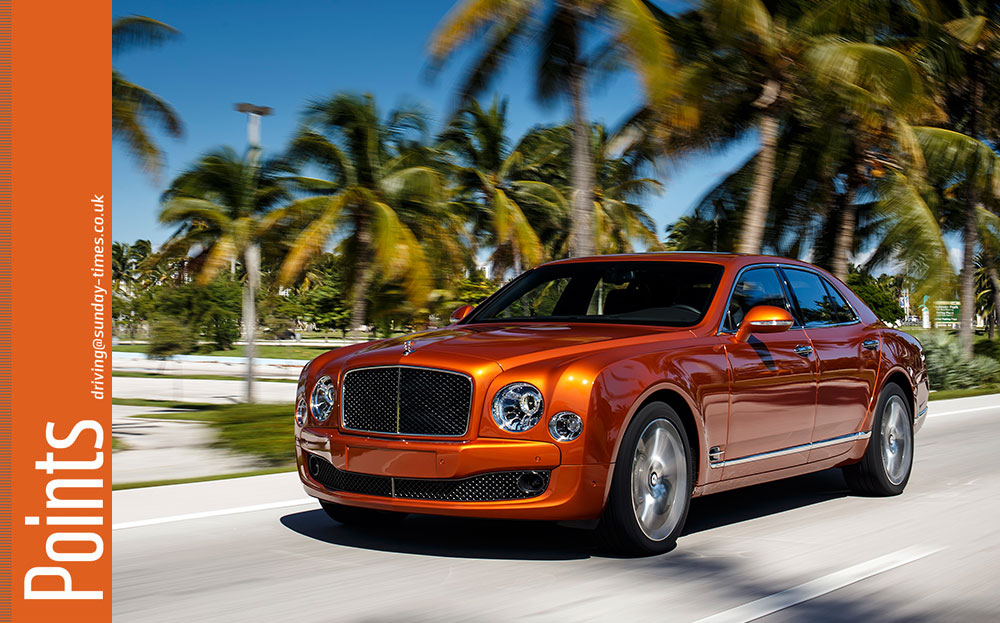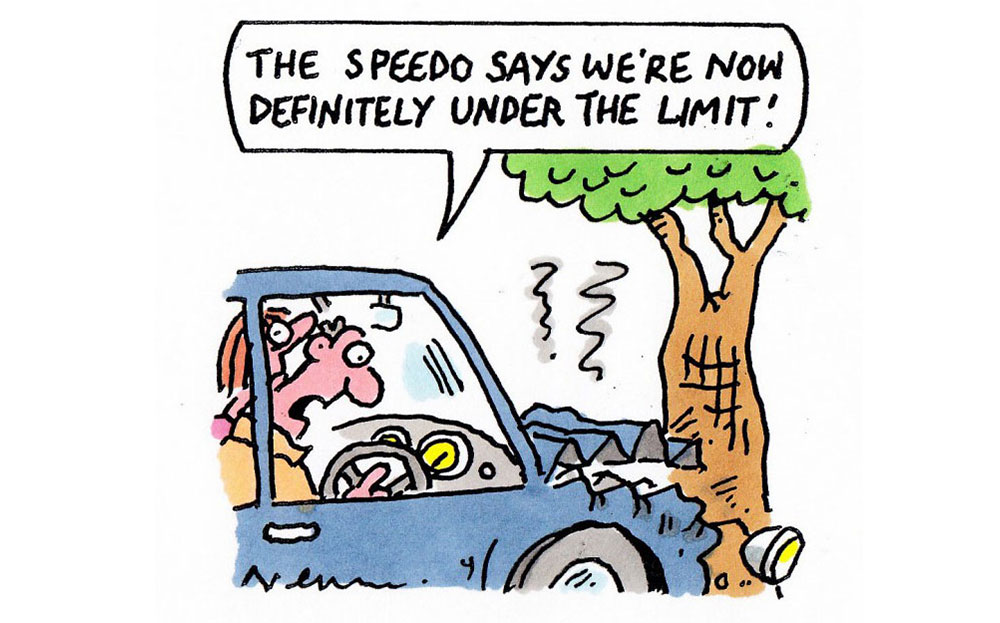Letters of the week, July 19
What got you talking this week

Bursting the bubbly
Regarding the Bentley Mulsanne review, are we really expected to believe a 6.75-litre turbocharged engine in a car of this weight will achieve the thick end of 20mpg (“The bubbly’s flowing at light speed”, First Drive, last week)? Or should we assume these figures (probably like those for CO2 emissions) are applicable only to laboratory conditions?
Dr Anthony Ingleton, Sheffield
Click to read car REVIEWS or search NEW or USED cars for sale on driving.co.uk
Scottish tragedy
Great to see Scottish police clamping down on reckless motorists exceeding the speed limit by 1mph (“Just 1mph too fast and you’re nicked”, last week). I have no doubt the casualty rate will plummet as fast as the authorities’ coffers swell.
What a shame such diligence was not applied to responding to serious accidents in Scotland: if it had been, perhaps the couple who crashed on the M9 the previous week would not both have died.
Les Golden, Allestree, Derby
Kiwi clampdown
I recently returned from New Zealand, where the limit on motorways is 100kph (62mph) and everyone knows that there is an effective 110kph limit before prosecution. In December the police decided to prosecute anyone exceeding the limits by 1kph.
The result? A sharp increase in road deaths and injuries as drivers were distracted by their speedometers. The number of speed prosecutions didn’t increase greatly. The police acknowledged that the experiment was a disaster and it will not be repeated there.
Tom O’Malley, Lindford, Hampshire
Less is more
Most drivers are habitual speeders who think that they can do what they want and no one should dare challenge them. Why is it that drivers must always be just over the speed limit and not just under? You want people concentrating on the road ahead, and that can mean they might be 2mph-3mph below the limit — far safer than continually looking down at your speedo.
Terry Wilson, Billingham, Co Durham
Safety error
You stated that three-quarters of councils have introduced 20mph limits in the past two years. This obsession with speed enforcement as a safety measure clearly doesn’t work, as accident figures rose last year despite the 20mph introductions. The whole “speed management industry” is making a fortune out of the belief that speed cameras and draconian policing will improve road safety. Figures show they won’t.
The only way to improve safety is to educate all users, including pedestrians, in the use of roads and respect for other road users.
Bob Bull, Portishead, Somerset
It’s a safe bet
Stuart Thompson (“Dating disaster”, Points, last week) clearly misses the point that Emma Smith’s wager is time-stamped by the publication date. It can’t be dated later, and it doesn’t matter if it is dated earlier as the advantage there is with Emma.
Neil Holley-Williams, Chichester
Electric switch
With reference to Paul Rylance’s statement about building more power stations for electric cars (“Future shock”, Points, last week), is he aware that petrol and diesel cars use more electricity than electric cars? We can’t put crude oil into a car — we have to refine it — and that process in the UK uses 5,600GWh of electricity. That’s enough to charge 23m electric cars to drive 20 trillion miles. If everybody in the UK bought electric cars, we could close three power stations.
Antony Read, Wigston, Leicestershire
Cool cat
Jeremy Clarkson asks why anyone would buy a Jaguar XJ when they could buy a BMW 7-series or S-class Mercedes (“Put a forged Monet in the boot and you’d have a real bounder’s Jag”, last week). The answer is because the two German cars, well engineered maybe, are frankly dull to look at and drive. The XJ is for people who actually enjoy driving.
Jonathan Batt, Castle Cary, Somerset





